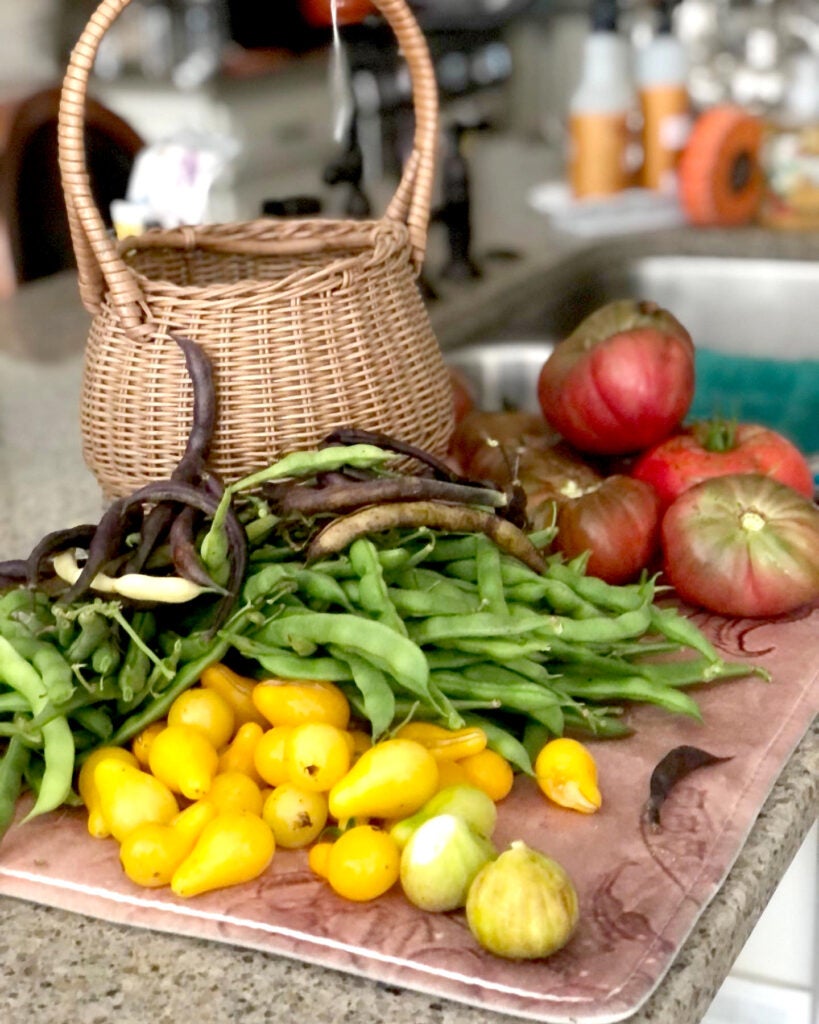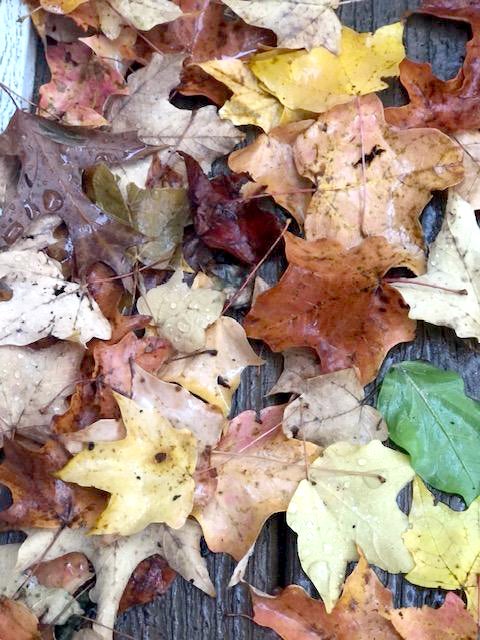By Jocelyne Waddle, The Garden Club of Frankfort
September! The garden, exhausted from the summer’s vibrant dance, breathes a sigh of relief while Demeter starts her mournful song for her beloved daughter, Persephone.
In her despair, as suffocating as the autumn sun, she gathers hues of gold and flame as she spins in a whirlwind of sorrows, twirling fiery leaves above sunburned fields, choking the air with the heavy scent of wood smoke and the promise of winter.

She fails to see that her daughter’s heart is torn. Persephone grieves for the warmth of her mother’s affection, but also longs for the intriguing allure of her husband’s shadowed haven.
There, beneath the cooling earth, her dark and passionate lover stirs in quiet anticipation as roots delve deep into the soil, enticing plants into a well-deserved slumber. Furry and feathered creatures hide in silent burrows where they will be safe from the impending icy clutches of winter.
As the last embers of autumn’s fires dim, the garden will offer us sonnets of love and loss etched in frost under the sun’s mournful glow. Stripped of its fiery colors, it will dream of spring’s maternal tender touch, of pink and yellow buds waiting to burst forth like pastel jewels on green silk.
And so, as we snuggle in our own nest on cool nights illuminated by harvest moons, the garden waits and dreams of Persephone’s return, of Demeter’s joy, of Vivaldi and his musical seasons.
The retelling of Persephone’s and Demeter’s eternal dance
My first memories are of a garden — my grandfather’s garden. I was a wide-eyed tottering apprentice, trailing behind this botanical sorcerer who could coax life from the most barren of soils. This superb weaver of enchanting tales taught me all I know about the world around me.

His favorite was the tale of Demeter and her daughter, but in his rendition, the story took on a distinctly French flavor, bubbling with passion rather than mere maternal love. This was the man, after all, who had won over my fearless Spanish grandmother, despite her mother’s strict disapproval.
With him, Demeter, the Greek goddess of the harvest, transformed into an uncompromising woman, believing that no man could prove himself worthy of her daughter. So incensed was she that she threatened to plunge the earth into a never-ending sterile winter.
However, Persephone’s husband emerged as the hero and voice of reason, proposing a compromise that allowed Persephone to spend spring and summer by her mother’s side. During these seasons, Demeter’s happiness would infuse the earth with lush beauty and delicate scents. Demeter’s sorrow, however, would cause the world to frown when Persephone returned to her beloved. The air would turn crisp. The sun, defeated, would hide behind steel laden skies.

Embracing the dance: Preparing your outdoor space for the colder month
Demeter and Persephone forever unite and separate in the grand ballroom of nature — and we, the humble gardeners, have learned through experience to move in harmony with the rhythm of the seasons.
As the world dust its winter cloak, it is time to gently prepare our gardens for the chill that lies ahead. Here’s how you can ready your space for the embrace of the frost-kissed months ahead:

- The last sweep: Remove any dead or ailing plants. These can harbor pests and diseases over the winter, threatening the rebirth of your garden in spring. Do not forget to pull any weeds that will choke tender seedlings.
- A warm embrace: Apply mulch to your garden beds. By acting as a fluffy blanket, this layer shields the soil from erosion and protects roots from freezing or drying out during the cold snaps. Refrain from blowing leaves, they offer shelter to wildlife and beneficial insects.
- Autumn’s kiss: Some plants, like the resilient Persephone, thrive in cooler weather. Consider planting broccoli, cabbage and kale. You can harvest them all the way to February. You can also plant garlic at that time.
- Winter’s shield: Protect your delicate plants from Demeter’s anger by bringing them indoors where they will continue to flourish. Pull out dahlias’ and begonias’ tubers and store them in a dry, cool place in your basement or garage.
- Spring’s promise: As you plant spring bulbs, envision the profound love of Persephone’s husband, standing aside and watching her spring ascent to breathe new life around us.
Each season brings its own rhythm and beauty. By preparing for the next dance, we ensure the continued health and vitality of our gardens. Just as Persephone, we understand the restorative beauty of slumbering things. In September, if you listen intently, you may hear the garden sighing into sleep while tiny feet tread on crimson leaves.










